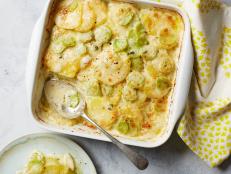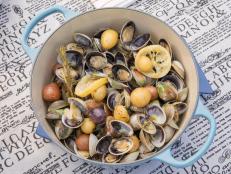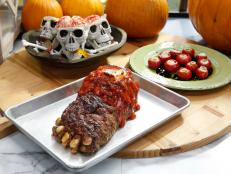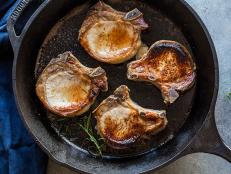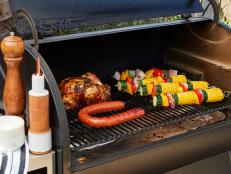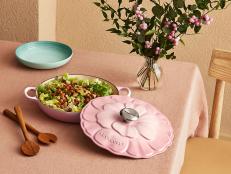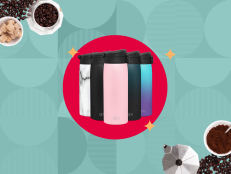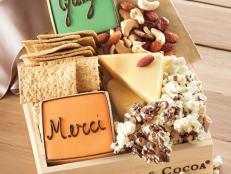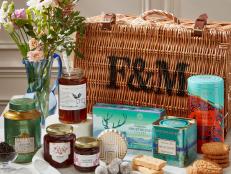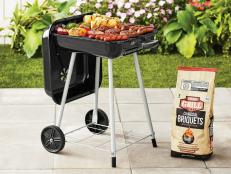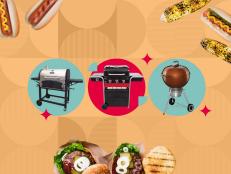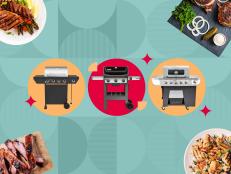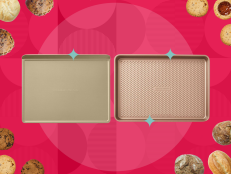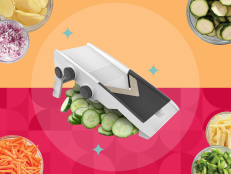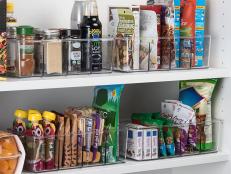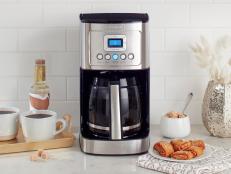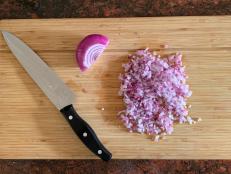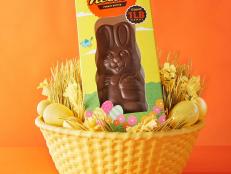Happy Earth Day - Join our compost party!


When you hear the word "compost", do you think of crazy hippies or back-to-nature enthusiasts? Well believe it or not, composting has joined the mainstream.
It's easy and rewarding for anyone, and in fact our very own Food Network kitchens has a compost operation to handle the multitude of food scraps that they generate daily.
 As you can see from the photos, they have small compost bins at each of the kitchen workstations, and then these small pails get emptied into the larger bin at the end of the day. You can find a similar bin at the Food Network Store
here. Shows like
Ask Aida and
Guy's Big Bite have also started including a compost bucket in their show.
As you can see from the photos, they have small compost bins at each of the kitchen workstations, and then these small pails get emptied into the larger bin at the end of the day. You can find a similar bin at the Food Network Store
here. Shows like
Ask Aida and
Guy's Big Bite have also started including a compost bucket in their show.

It's the process of taking food scraps and other organic matter such as leaves, grass clippings and flowers, and breaking them down into nutrient-rich soil. The beauty of compost is that it creates a cycle of use and reuse; when food scraps get broken down into compost, their nutrients go back into the soil, helping a new plant grow. Composting is rewarding in many different ways. One, you'll drastically reduce the amount of trash that goes into a landfill. Scientists estimate that about 40% of all household trash is biodegradable, yet most of us throw it in plastic bags along with all our non-recyclables.
When I began composting last year, I was thrilled when I all of a sudden I realized that I'd reduced my three-person-household's weekly trash output to just one bag per week. Two, composting gives you ultra-rich soil that is like a multivitamin for plants. Instead of buying expensive and toxic fertilizers, compost provides you a free source of nutrients for your plants. And with the recent surge in home gardening, this is soil that can be well used.

The pre-composted organic matter can be broken down in a few different ways, the most notable being tumbler bins or worm bins (these use a process known as vermicomposting, where hungry earthworms eat and digest the food, turning it into compost.) Both of these are easy and affordable to procure for your home, but if you don't have space or don't have a garden where you could use the compost, check with your local community garden, park, or nature center to see if they have a community composting program.
At home in my Brooklyn apartment, I compost in two ways: I use my worm bin year-round (though mainly in winter), which sits on the landing outside my apartment, and in the spring, summer, and fall when the community compost program is available, I save my fruit and veggie scraps, egg shells, and coffee grounds in a plastic bag in my freezer, then drop it off at their site once a week. Our very own Noah Starr, from Ask Aida, actually shot this composting video at the very cite where I drop off my scraps: The North Brooklyn Compost Project! Many cities now feature municipal collection and composting programs, but until those become as widespread as recycling and trash pickup, it's easy to do on your own. In fact, it's something we’re hoping to implement into the curriculum at our Good Food Gardens community gardens across the country.
Check out this guideline for composting adopted from The North Brooklyn Compost Project:
Your compost should consist of two types of materials (equal parts), simply referred to as “Greens” and “Browns.” “Greens” such as vegetable matter and coffee grounds help add nitrogen and moisture to the pile. “Browns” such as dried leaves add carbon. Turning the compost often will help add oxygen.
Kitchen scraps: uncooked fruit & vegetables, corn cobs, potato peels, fruit rinds, cores
Garden weeds (please refrain from bringing diseased or highly invasive plants)
Packing peanuts (the cornstarch kind that dissolve in water, not styrofoam)
Have you recently started composting? Let us know in the comments section!
























